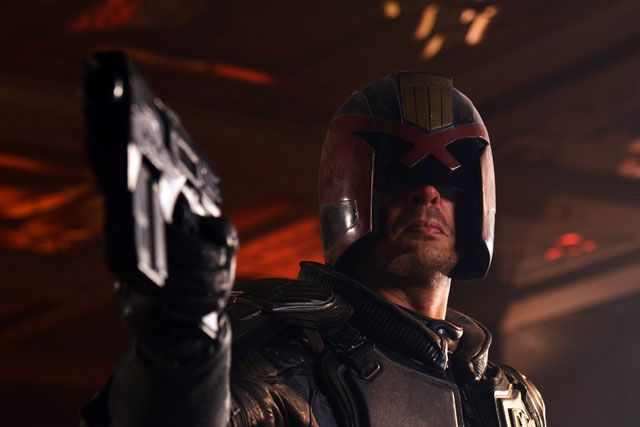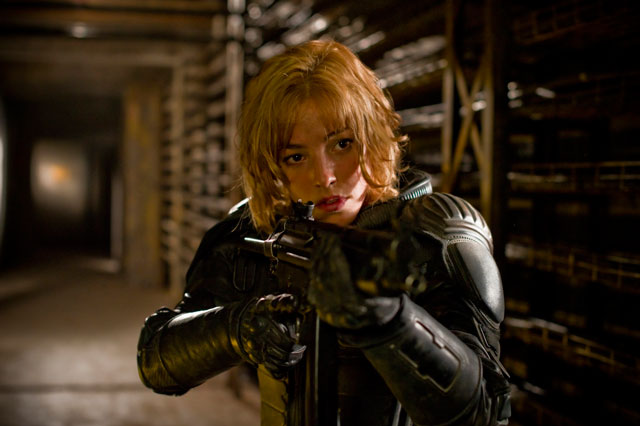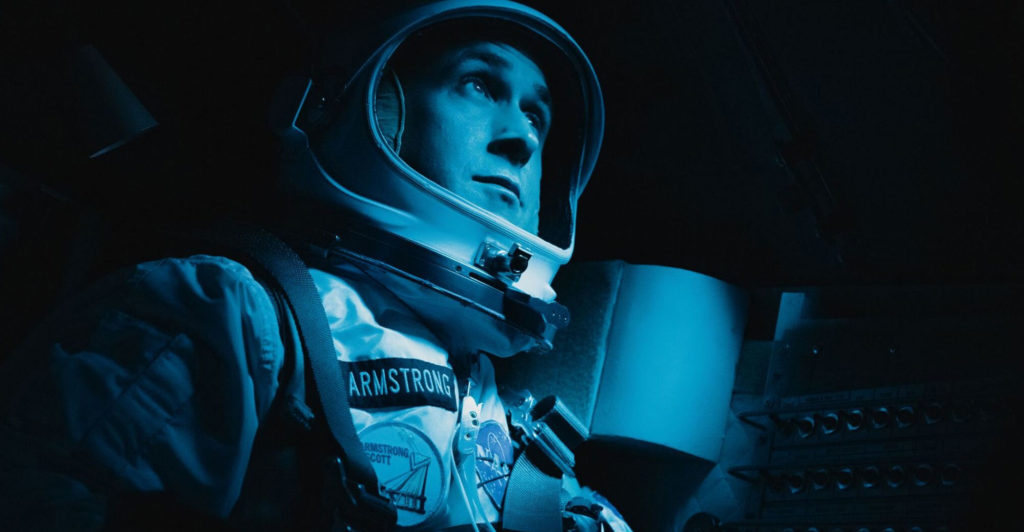Rejoice, 2000AD fans! Dredd is just as tough and uncompromising as the character upon which it is based. It is a lean action movie with a mordant wit and an obvious love for its British comic-book inspiration.
Alex Garland’s superb screenplay captures the spirit of the 2000AD comic in a film that plays like a dystopian Dirty Harry with a satirical edge. The film’s bleak vision — evoking the Thatcherite nightmares of the comics — is sure to make it as much of a cult classic as Robocop or District 9.
Dredd is set in Mega-City One, a metropolis of the future that sprawls from today’s Boston to Washington. Outside of the urban limits, America is an irradiated wasteland. Inside the city, where 800m people live in crumbling tenements, law-abiding citizens are trampled underfoot by mobsters and drug dealers.
Dredd (Karl Urban) and a handful of fellow judges — who have the power to arrest, convict and sentence criminals on the spot — hold the line between order and anarchy in a city where unemployment is rampant and more than 17 000 crimes are reported every day. The film follows a day in Dredd’s life as he doles out his brand of justice.
Accompanied by rookie Judge Anderson (Olivia Thirlby), Dredd heads for a 200-storey slum building to investigate three gruesome murders. They get trapped inside the tower when drug baroness Ma-Ma (Lena Headey) orders their deaths to prevent them from interrogating a henchman of hers they have arrested. Dredd tells the story of how the judges fight for their lives against seemingly impossible odds.
Dredd was made on what passes as a limited budget by today’s standards — US$45m apparently — but this is a strength rather than a weakness. As with District 9, the fairly modest budget gives the filmmakers the freedom to make a scrappier, edgier film than they could if a studio had put more money on the table.
Fans might miss the robots and aliens of the comic-book universe — which the filmmakers evidently felt they did not have the money to do justice to — but Dredd benefits from its narrow band of focus. The film is an economic 90 minutes where so many blockbusters are overlong; brutal where comic-book films are often bloodless; and truly cynical when many big films are simply self-satisfied.
The decision to cast the reliable Urban in Dredd’s role rather than an A-list star also works in the film’s favour. Urban probably isn’t the guy most fans would’ve chosen for the role, but his performance does a great job of channelling Clint Eastwood’s Dirty Harry — one of the major inspirations for the character.
With his mouth locked into a firm line, a rigid jawline and a voice that could sand wood, Urban’s Judge Dredd makes you believe it when he says, “I am the law”. Unlike like Sly Stallone in the awful Judge Dredd, Urban does not take the helmet off during the film’s running time.

This film gets it: Dredd isn’t a man. He doesn’t need a back story or a character arc. He shouldn’t be encumbered by a big-name Hollywood star’s ego or persona. Unbending, stony and impartial, he is the spirit of justice made flesh.
Thirlby’s Judge Anderson is a psychic with the ability to read minds and infiltrate the thoughts of others. Conveniently, her power does not work well when her face is covered by a judge’s helmet, making her the human link between the viewer and Dredd’s world. She’s an appealing character — idealistic and warm in a world that has little space for those qualities.
The judges are pitted against a villain who is worthy of the comic-book’s hall of infamy, though she’s an original creation. With scars mapping her face and her discoloured teeth, Headey’s Ma-Ma is a feral animal who has survived ferocious encounters with the fanged and clawed beasts who would be king of the jungle. Calculating but brutal, there is no line the battle-hardened Ma-Ma has not yet crossed.
Workhorse director Pete Travis does a decent job behind the camera, though one suspects that this really is Garland’s show. The action scenes are as taut and clipped as the dialogue, and offer a few splashes of hyper-realistic colour in a washed-out film that is more urban noir in look than blockbuster comic book.
The use of a drug called Slo-Mo — which slows down the user’s perception of time — gives the film an excuse to play around with some stylised slow-motion action scenes in the manner of Sam Peckinpah or John Woo. Paul Leonard-Morgan menacing, gritty techno score captures the discord of Dredd’s shattered world perfectly.

Dredd creates the urban sprawl of Mega-City One from the Cape Town studios and settings where it was filmed. South Africans will have fun spotting the familiar landmarks in the CGI city of Mega-City One. Curiously, SA taxis are a menace on the road in Dredd’s future America, but they’re no match for Dredd’s Lawmaster motorcycle.
There are a couple of things to quibble about, starting with yet another gratuitous 3D treatment, which I felt detracted from the grit and punch of the action sequences. Also, the film is conceptually similar to the recent The Raid, which robs it of a little of its impact. I’m not sure whether viewers not familiar with Judge Dredd will pick up the little details fans will take for granted.
But that is all just nit-picking. Blackly funny and to the point, Dredd is the perfect counterpunch to the bloated, anaemic blockbusters that bluster onto the cinema circuit every Hollywood summer season. Enjoy and treasure it, for a poor US box office reception means that a second serving is unlikely. — (c) 2012 NewsCentral Media




